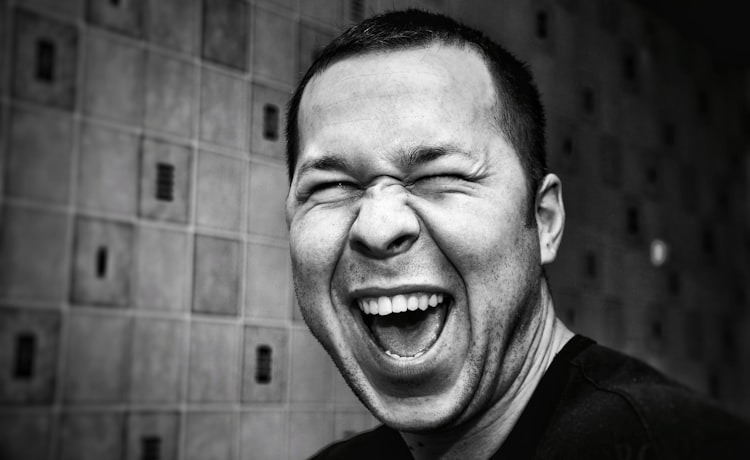广告风格不同产品相同
不同广告风格适用于不同产品类型
广告风格对于产品的销售和推广至关重要。不同的产品类型需要不同的广告风格,以吸引目标顾客的注意力,增加他们对产品的兴趣和信任感。以下是几种不同的广告风格和它们适用的产品类型。
品牌广告风格
品牌广告风格适用于那些已经在市场上有一定知名度和声誉的品牌。这种广告风格的目的是提高品牌的知名度,让消费者对品牌产生好感并愿意购买。品牌广告通常会使用知名演员、模特或者其他有影响力的人物来代言。这样一来,消费者会将这些人物的好感度和影响力转移给品牌,提高品牌的知名度和信任感。品牌广告适用于高端产品,如奢侈品、高档化妆品、高端手表等。

产品功能广告风格
产品功能广告风格适用于那些需要说明产品功能和特点的产品。这种广告风格的目的是让消费者了解产品的功能和特点,并让消费者相信这些功能和特点真实有效。产品功能广告通常会使用实际场景和实验来展示产品的功能和特点,让消费者对产品有更深入的了解和认识。产品功能广告适用于电器、汽车、家居用品等。

情感广告风格
情感广告风格适用于那些需要引起消费者共鸣和情感回应的产品。这种广告风格的目的是通过情感共鸣来吸引消费者的注意力和兴趣,并让他们对产品产生品牌忠诚度和信任感。情感广告通常会使用感人的故事、温情的场景、动人的音乐来吸引消费者的情感共鸣。情感广告适用于食品、日用品、医药保健品等。

如何选择适合的广告风格
要选择适合的广告风格,需要考虑产品的类型、市场定位、目标消费者的属性和需求等因素。以下是几个选择广告风格的建议。
了解产品的特点和优势
在选择广告风格之前,需要了解产品的特点和优势。产品的特点和优势会影响消费者对产品的需求和期望,进而影响选择广告风格的方向和重点。比如,一款电器产品的特点是高科技、高效节能,那么可以选择产品功能广告风格来强调这些特点和优势。
了解目标受众的属性和需求
选择广告风格还需要考虑目标受众的属性和需求。不同的消费者对于广告的接受度和回应效果不同。比如,年轻人更愿意接受情感共鸣和创意广告,而老年人更愿意接受实用性和功能性广告。
了解市场竞争状况和趋势
在选择广告风格之前,还需要了解市场竞争状况和趋势。市场上已经有哪些品牌在使用什么样的广告风格,哪些广告风格更受欢迎和有效,这些都需要考虑。同时,还需要关注市场趋势,及时调整广告策略和风格,以适应市场的变化和需求。
结论
选择适合的广告风格对于产品的销售和推广至关重要。不同的产品类型需要不同的广告风格,以吸引目标顾客的注意力,增加他们对产品的兴趣和信任感。在选择广告风格时,需要考虑产品的类型、市场定位、目标消费者的属性和需求等因素,并结合市场竞争状况和趋势,选择最合适的广告风格和策略。

广告风格不同产品相同随机日志
来自微软官方的一款非常实用的投影演示辅助软件,包含三项功能:屏幕放大屏幕画图倒计时提醒。
1、品牌特卖:知名品牌,服装、美妆、居家、母婴、食品、鞋包、数码电器,让你实现少花钱,多生钱!
2、【一键转换】自带各种像素绘画功能,使用该软件可以制定一个专属于自己的像素图片,放入一张自己所喜欢的图片,即可一键转化成像素风格,解锁成为自己专属的像素图像,还能够在该软件内找到一些热门的图片分类,各种图片每天都会更新。
3、可以组成“兵团”,协同攻克工业难题,形成一个庞大的工业协同解谜网络。
4、行业专属、为云而建、erp为核心——可无限扩展
5、【伴读一生】关注你的阅读,了解你的阅读;
<随心_句子c><随心_句子c><随心_句子c><随心_句子c><随心_句子c>China to Promote Highly Automated Vehicle as $72 Billion EV Tax Break Unveiled BEIJING, June 22 (TiPost)— China will step up adoption of vehicles backed by high-level self-driving technology as it ramps up fiscal stimulus for consumers spending on the clean cars. Source: Visual China The Ministry of Industry and Information Technology (MIIT) will launch pilot projects for on road and traffic applications of intelligent connected vehicles, carry out the demonstration of citywide vehicle-road-cloud integration, and support conditional autonomous driving, namely, commercialization of L3 or above level autonomous driving technology, said Xin Guobin, the Vice Minister of MIIT, at a press conference on Wednesday. Companies from all over the world are welcomed to invest in China, and Beijing will support their partnership with Chinese firms on fields such as solid-state batteries and self-driving, and their cooperation to address technical difficulties, so as to accelerate tech breakthrough and industrial applications, Xin said. Xin also encourage domestic companies to expand operations beyond China, build facilities and bring their advanced technologies and products overseas. Xin’s remark came as the day China unveiled the highly-anticipated tax break to boost electric vehicle (EV) and other green cars, as part of efforts for economic support. The government will extend and optimize the purchase tax exemptions for the new energy vehicle (NEV), including the battery electric vehicle (BEV) and the plug-in hybrid electric vehicle (PHEV), the Ministry of Finance, the State Administration of Taxation, and MIIT announced on Wednesday. Specifically, any NEV purchased between 2014 and 2015 will be exempt from vehicle purchase tax amounting to as much as RMB 30,000 (US$4,170), and the vehicle purchase tax purchase for any NEV bought between 2026 and 2027 will be reduced by half, with a reduction cap of RMB15,000. The tax break extension is expected to bring a total of tax exemption and reduction amounting to RMB520 billion (US$72.4 billion) from 2024 to 2027, Xu Hongcai, the Vice Minister of Finance, citing the preliminary estimates at a press on Wednesday. Xu said the tax relief was offered to bolster domestic consumption, and the cap of exemption or reduction can avoid too much consumers’ usage of tax relief on luxury cars. The recent tax break can deemed as the tailwind for NEV sector in the long run as both the extension of tax exemption and the tax reduction have the validity period of two years, suggesting sort of policy stability, commented Cui Dongshu, secretary-general of China Passenger Car Association (CPCA). Cui estimated the annual tax exemption to be a peak of nearly RMB200 billion, which reflects the unexpectedly powerful national support by means of tax incentive.返(fan)回(hui)搜(sou)狐(hu),查(zha)看(kan)更(geng)多(duo) 責(ze)任(ren)編(bian)輯(ji):